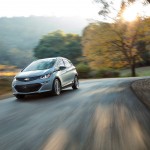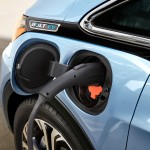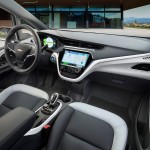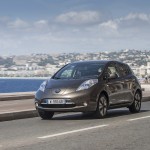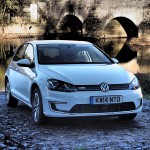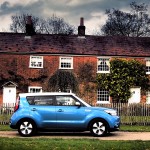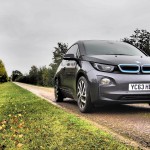Chevrolet aren’t known for their economising, planet-saving expertise. Instead, they’re best known for their completely at-odds gas guzzling cars that actively laugh in the face of polar bears. However, that’s a wholly unfair and out-dated reputation that is rapidly changing. Sure, like many major companies, they’re perhaps not as quick on their feet as – say – Tesla Motors, but like the young whipper-snapper, Chevrolet has the power to alter the industry with their forthcoming electric car.
While Tesla has made a name for itself with its fabulous Model S, it is a car that they themselves admit to be a showcase and the reserve for the more affluent car purchaser. Being a small company, they announced plans to bring to market a more affordable car in the form of the Model 3. However, in the meantime, the sleeping giant that is General motors (GM) awoke to see that Tesla had grabbed a whole chunk of the prestige motors market and that didn’t sit well.
More positively, it spurred the giant into action and a plan as hatched to bring a small but “affordable” electric car to market. The Bolt was hastily bolted together and provided such a vehicle, with a 200-mile range and a $30,000 price tag. In many ways, it appeared to do exactly what Tesla’s Model 3 was supposed to. Chevrolet’s might and wealth then came into play by being able to force the Bolt to market as soon as the end of 2016 – a whole year ahead of Tesla’s offering. Unfortunately for us in the UK, Chevrolet (and GM) are keeping quiet about the prospect of sending the Bolt EV abroad, perhaps under the branding of Vauxhall or Opel so we shall have to wait and see.
Meanwhile, in the background to this micro-battle, the other major players in the automotive world were gaining critical user experience knowledge and building their electric car brands from the ground up. Nissan had their best-selling LEAF on the market in 2010, and many followed suit. Progress was always on the cards for electric cars but the LEAF set the benchmark to which other manufacturers copied rather than tried to beat. The VW e-Golf, Kia Soul EV and arguably BMW’s i3 too, all arrived with similar range and power with nothing particularly threatening to the LEAF, which is why it still remains the most popular electric vehicle on our roads today. Even partner company Renault’s ZOE has been unable to shake consumer admiration for the LEAF. However, with the one-up-manship being played out in the states, things are bound to have a knock-on effect here in the UK, Europe and beyond.
Enter the Nissan LEAF 30kWh. It’s a far cry from Chevrolet’s 200-mile Bolt EV, but it’s a step-up in the range stakes that brings the venerable LEAF closer to its future competition. Nissan has also plugged a load more money into its Sunderland factory with the specific purpose of enhancing battery production there, likely with the future in mind and the next generation of batteries. Nissan has also revealed the IDS Concept that has been rumoured by many to be the “next” LEAF, and that has a 60kWh battery providing similar range to Chevrolet’s Bolt.
Volkswagen has brought more electric concepts to the table too, not wanting to lose its possible grasp on the electrified market and in light of the diesel emissions scandal. These also feature over-size batteries in a bid to keep up with the competition and improve customer appeal as well as attract new customers to EVs who might otherwise be put off by lower-range electric vehicles.
Kia’s Soul EV was already a class leader when it was launched, with a special innovative approach to the design of its battery and clever interior heating that all helped allow it to travel 132 miles on a single charge. Spy shots have been taken (not by us) of the forthcoming 2018 face-lift model that will sport new lights and air-intakes but it is expected, although not confirmed, that the company will take the opportunity to increase range too.
Renault managed to eke out a bit more performance and range for their ZOE by updating the electric motor. This improved range to around 150 miles (NEDC) while also improving performance of the vehicle. Although Renault has kept its cards close to its chest, their presence in Formula E is a strong indicator that they’ll be improving electric car tech as time moves on and their electric range of four (Twizy, ZOE, Kangoo Z.E., Fluence Z.E.) is in dire need of updating since Twizy sales have limited appeal due to the type of car (or technically quad bike), Kangoo Z.E. is outclassed and out-sold by the Nissan e-NV200 and the Fluence Z.E. has stopped production and sales in Europe due to lack of demand. ZOE’s future is therefore likely to receive the most attention and see the biggest improvement with likely improvement to performance and range in the not too distant future.
Finally, BMW who went down a slightly obscure path to the rest will upgrade their battery offering in the i3. While nothing has been said in public yet, the German company will offer a larger battery for their excellent i3 EV in “summertime” 2016. Whether they opt to keep the current i3 battery and offer a larger capacity variant alongside it is yet to be announced – but this is a possibility given Nissan’s LEAF now being offered in both 24 and 30kWh variants. The additional range BMW will give is also undefined at the time of writing, but will likely offer in the region of 50% increase in range over the current model by using new electrode material and better packaging of the floor-pan housed battery. Of all the current EVs on the market, the i3 stands out as the most easy to adapt and improve thanks to its EV purpose-built design and chassis design.
Chevrolet has certainly stepped things up a gear in the world of EVs. However, credit is purely on the basis that they will likely be the first to bring an affordable 200-mile range EV at a relatively affordable price to market. This does not, by any means, mean that it will either be a sales success or establish the brand as an electric car maker to be reckoned with. Competition will be quietly fierce but it is probable those who have spent the past six years establishing themselves as electric car leaders will not allow their position to be threatened without contest.
